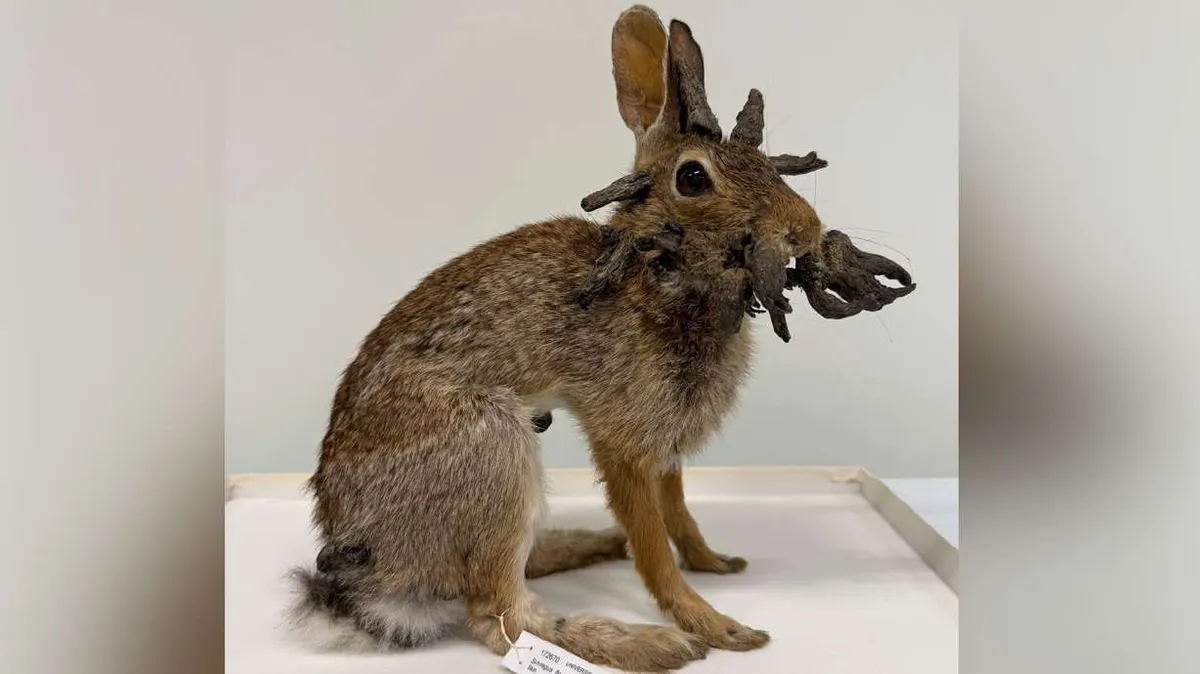
In recent weeks, a peculiar phenomenon has captured the attention of residents in Fort Collins, Colorado. A group of cottontail rabbits has been spotted displaying grotesque, hornlike growths on their faces, reminiscent of creatures from a low-budget horror film. However, scientists reassure us that there is no need for alarm; these furry residents are merely infected with the relatively common Shope papillomavirus.
The Shope papillomavirus is known for causing wart-like growths that protrude from the rabbits' faces, creating an unsettling appearance akin to horns. This virus has garnered attention due to its unusual manifestations, leading to a flurry of unflattering nicknames for the afflicted rabbits, including "Frankenstein bunnies," "demon rabbits," and "zombie rabbits." Despite their eerie looks, the condition is not new; the virus has historical roots in ancient folklore and has been the subject of scientific research for nearly a century.
Interestingly, the Shope papillomavirus may have contributed to the creation of the legendary jackalope myth in North America, which describes a rabbit with antlers or horns. This connection highlights the long-standing relationship between folklore and biological phenomena. Additionally, research on this virus has significantly advanced our understanding of the links between viruses and cancer, particularly in relation to the human papillomavirus (HPV) that is known to cause cervical cancer.
The virus was named after Dr. Richard E. Shope, a professor at The Rockefeller University, who first identified the disease in cottontails during the 1930s. His groundbreaking work laid the foundation for future research on the implications of viral infections in both animals and humans.
News about the horned rabbits in Fort Collins has spread rapidly, particularly after local residents began sharing pictures of these unusual creatures on social media. Kara Van Hoose, a spokesperson for Colorado Parks and Wildlife, confirmed to the Associated Press that the agency has received numerous calls regarding the sightings. Van Hoose explained that it is not uncommon to encounter infected rabbits, especially during the summer months when fleas and ticks—vectors for the virus—are most active.
The Shope papillomavirus can spread from rabbit to rabbit, but it does not pose a risk to other species, including humans and pets. According to Van Hoose, while the growths may resemble warts, they can appear horn-like if they grow longer. Fortunately, these growths typically do not harm the rabbits unless they interfere with vital functions, such as eating or vision. Fortunately, the rabbits' immune systems are capable of combating the virus, leading to the eventual disappearance of the growths once they recover.
While the sight of horned rabbits might be unsettling, the Shope papillomavirus is a well-documented and mostly harmless condition in the animal world. As these rabbits continue to roam the streets of Fort Collins, they serve as a reminder of the complex interactions between wildlife and viral diseases, as well as the fascinating stories that emerge from our natural environment.